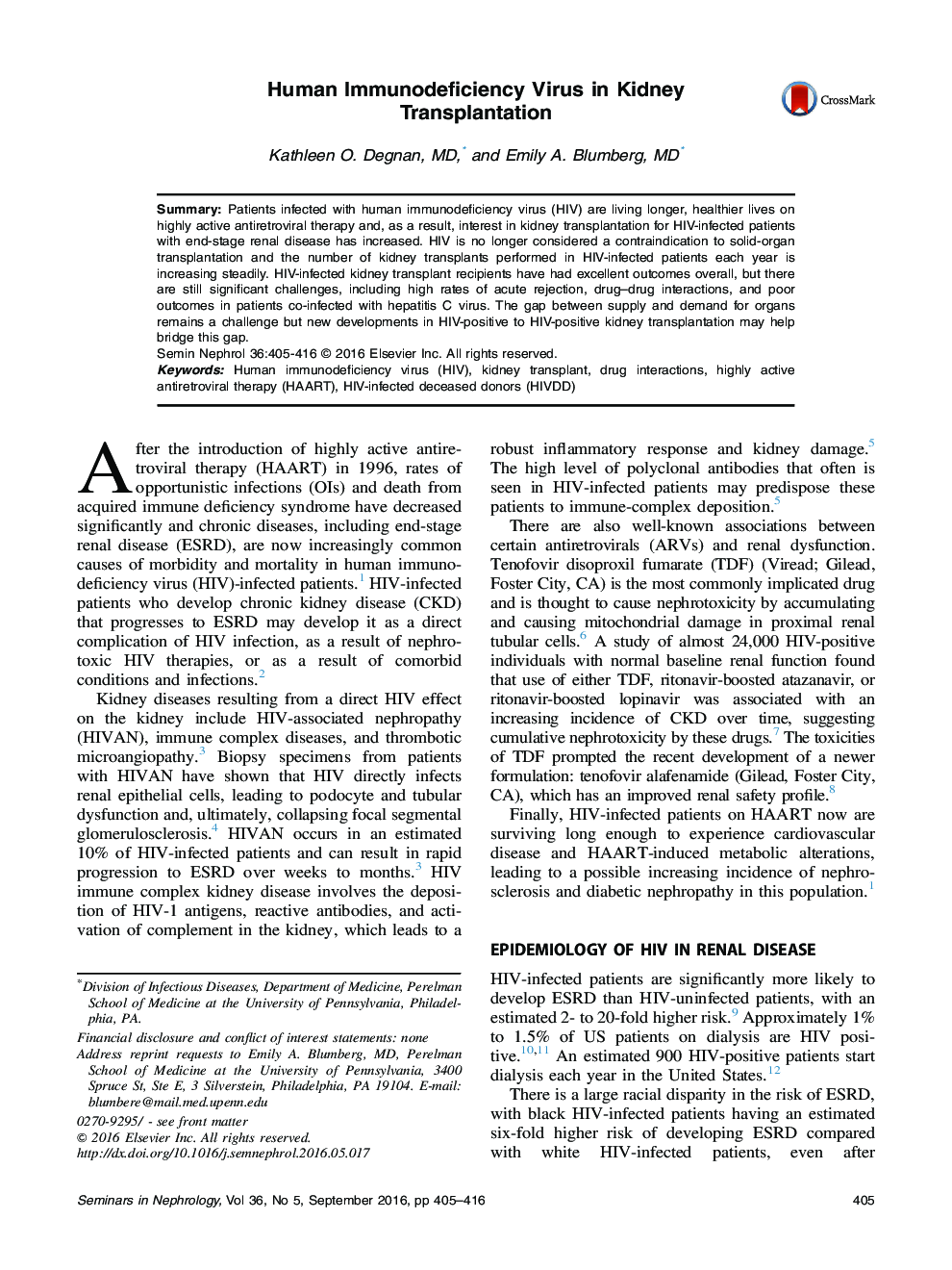| Article ID | Journal | Published Year | Pages | File Type |
|---|---|---|---|---|
| 5691696 | Seminars in Nephrology | 2016 | 12 Pages |
Abstract
Patients infected with human immunodeficiency virus (HIV) are living longer, healthier lives on highly active antiretroviral therapy and, as a result, interest in kidney transplantation for HIV-infected patients with end-stage renal disease has increased. HIV is no longer considered a contraindication to solid-organ transplantation and the number of kidney transplants performed in HIV-infected patients each year is increasing steadily. HIV-infected kidney transplant recipients have had excellent outcomes overall, but there are still significant challenges, including high rates of acute rejection, drug-drug interactions, and poor outcomes in patients co-infected with hepatitis C virus. The gap between supply and demand for organs remains a challenge but new developments in HIV-positive to HIV-positive kidney transplantation may help bridge this gap.
Keywords
Related Topics
Health Sciences
Medicine and Dentistry
Nephrology
Authors
Kathleen O. MD, Emily A. MD,
